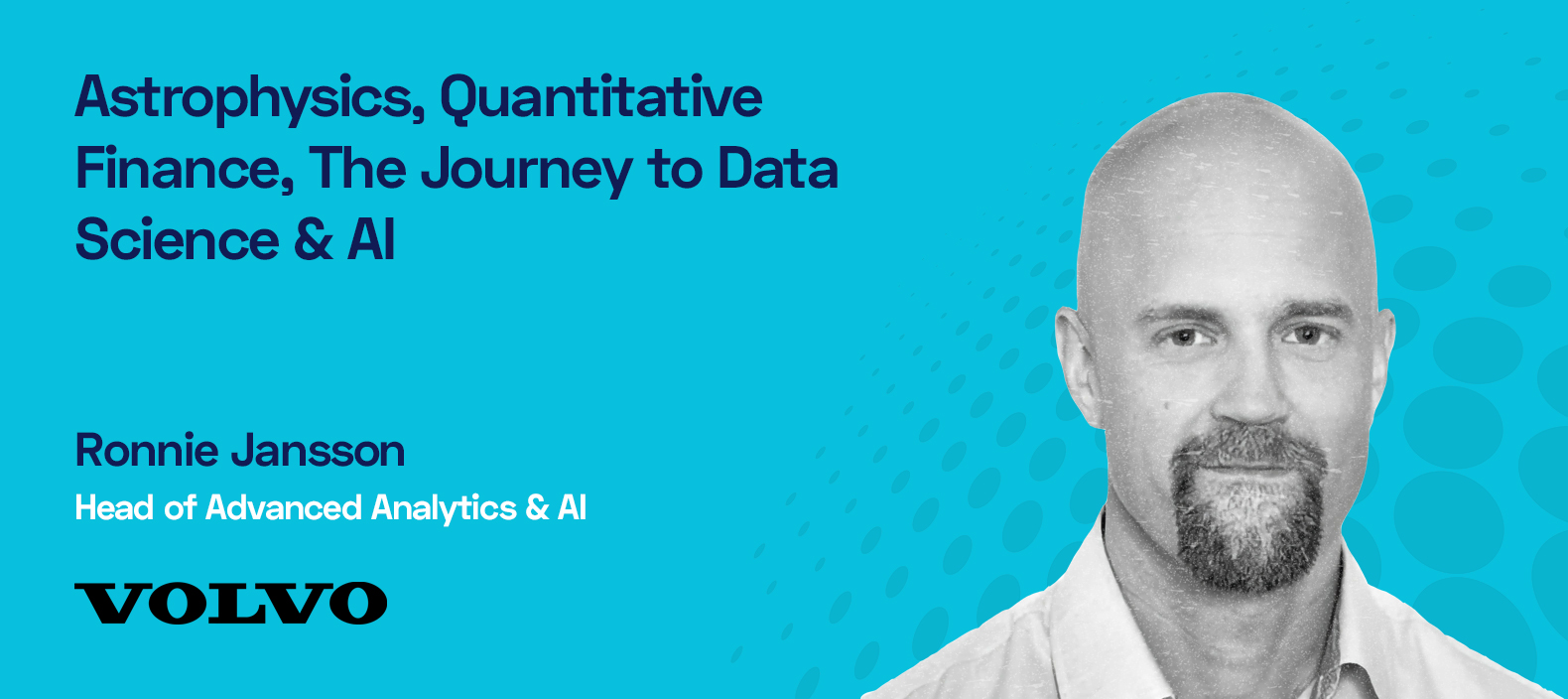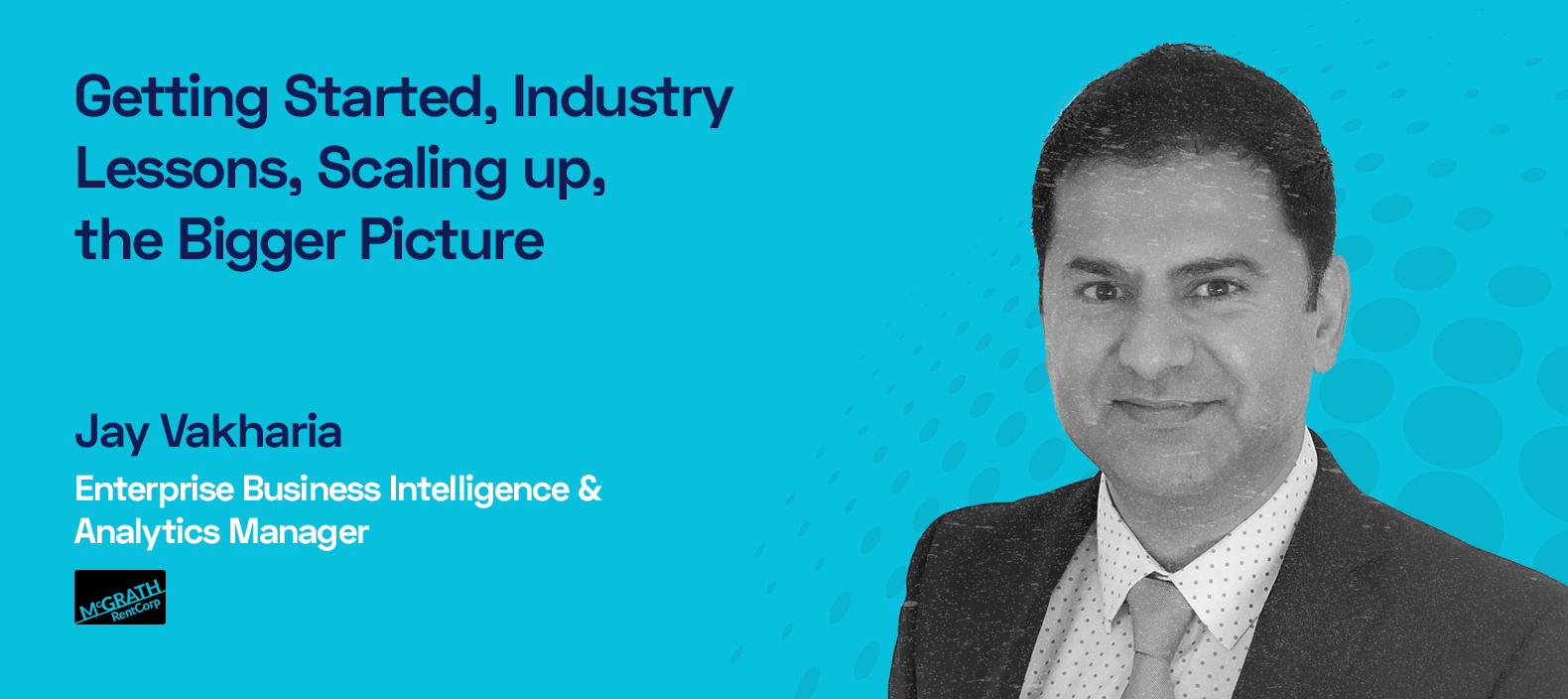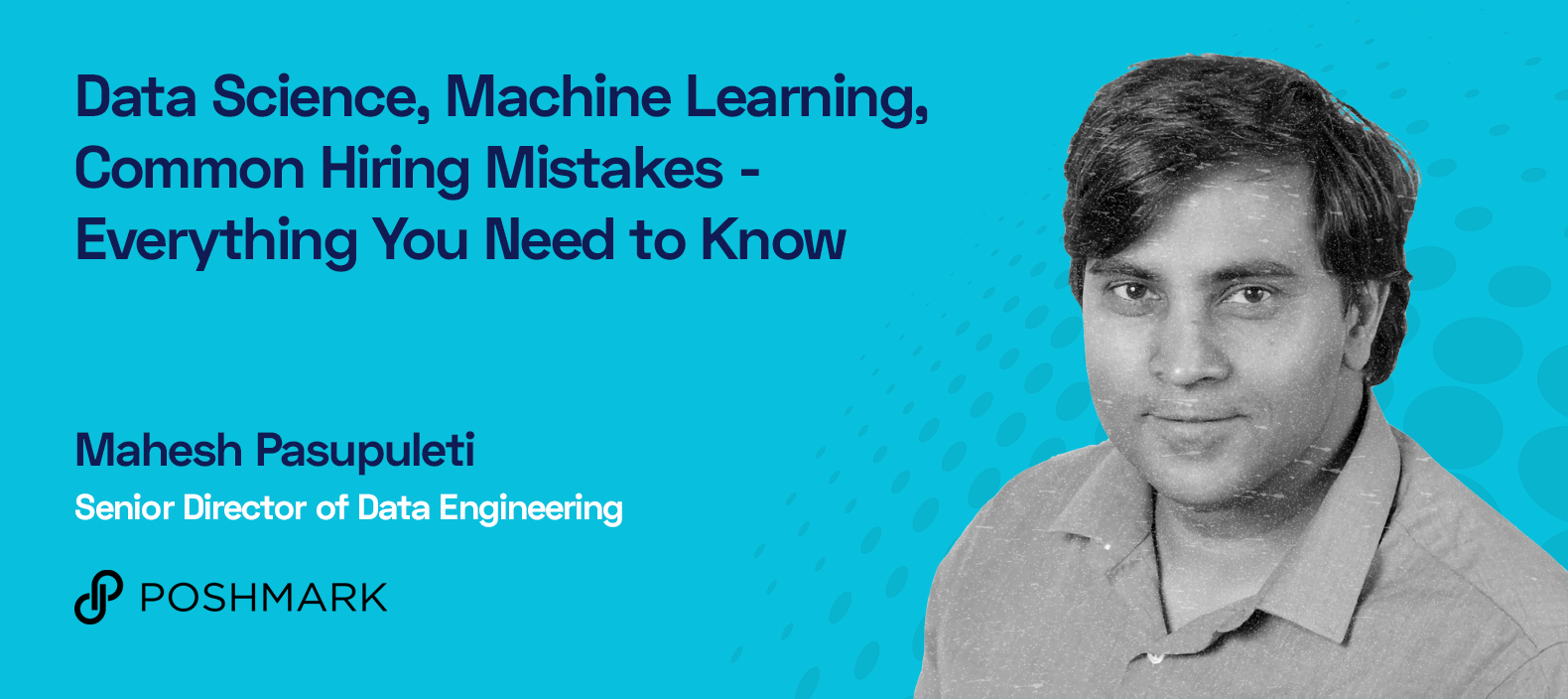The Interview with the Hiring Manager series from DataMatrix aims to provide aspiring data science, engineering & analyst candidates a glimpse of how potential hiring managers view the field. In this series, Hiring Managers share best practices, tips & feedback for prospective candidates.
This week, we speak to Ronnie Jansson1, Head of Advanced Analytics & AI at Volvo Cars. Ronnie moved from an academic career in Astrophysics to become a Quantitative Analyst at Citigroup. He then joined the data science team at Dotdash, rising to Senior Director, before moving to Volvo Cars.
Could you tell us a little bit about your career journey and what brought you into data science?
I did my PhD in Astrophysics at New York University and remained in academic research for a few years. NYU is just a few blocks away from Wall Street. And like many ex-scientists from NYU, I ended up in quantitative finance after academia. That was fun for a while, but I kept hearing from my old astrophysics friends about this new thing called data science. So, I joined some friends at a digital publisher in New York, now called Dotdash, and I ended up running a data science team there for a few years.
Then, for family reasons, I wanted to head back to Sweden. Volvo Cars was going through their digital transformation journey at the time, and I joined the company three years ago to start a data science team there, as part of this transformation. Right now, I’m the head of Advanced Analytics and AI at Volvo Cars.
What have been some of the key learnings and shifts in the data science field as you've journeyed through it?
One clear trend that I have seen over the years is the “commoditization of machine learning.” This means that what used to require a lot of in-house development a few years ago, can now be used as an off-the-shelf algorithm in a Python package or even as an API provided by someone else, with a trained machine learning model behind it.
At the same time, the skill set of the typical data scientist entering the field has changed quite dramatically. When I interviewed candidates five years ago, serious machine learning skills were rare and hard to find. But nowadays, you find entry-level candidates with experience in, say, deep learning. That’s great, of course. But, on the flip side, the fundamentals like statistics, probability, and more straightforward data analysis have become a bit of a weakness in many entry-level candidates.
In your experience, what are the most exciting aspects of building and managing data teams?
What are the key challenges you face in building and managing data science teams?
The obvious challenge is that it’s hard to find great candidates. Or, rather, the competition for them is fierce.
When it comes to managing a data science team, some problems are specifically found in non-tech companies, where the data science role in the company isn’t always very well established. It can be hard to find the right organizational fit that maximizes the value of a data science team. I know a lot of examples where teams can get frustrated because of the lack of traction internally in an organization. And I think a lot of that stems from top management not really knowing how and where to put data science teams to the best use.
A corollary of this is that it can be hard to manage data scientists’ expectations. Almost invariably, data scientists expect to be able to spend most of their time building interesting models, making predictions, and so on. The mundane reality is that there’s a lot more basic analytics that needs to be done, and, definitely, a lot of data wrangling.
One important role of data science team managers is to educate the organization about the use and the value of data science. There is a lot of hype around the value of data science and machine learning, so expectations can run far too high from the management point of view. And they don’t realize that, to get the benefits of machine learning, it’s not enough to hire a data science team. You often need very specific and tailored infrastructure for successfully deploying machine learning. You need data governance principles to work. You need integrations and accessibility to systems that weren’t really meant to share certain data. So, many companies must undergo a transformation journey before they can reap the rewards of a data science team.
What are some of the biggest mistakes that companies make during the hiring process that either result in bad hires or drive away good candidates?
I can start by being self-critical. We are hiring right now, and if you asked this question to candidates we have been interviewing, they will lament the fact that the process has been very slow. We’ve had our reasons, but letting the recruitment drag on for too long can definitely drive away valuable talent.
Another failure mode is not knowing exactly what you want as a company. You can tell this from reading companies’ data science job ads. If you see the list of skills they require, they really want a whole team, not one person. But they try to pull it all into one job advertisement.
When it comes to actually recruiting, I’ve noticed a tendency to rely too much on the CV of a candidate. Of course, everybody does interviews and tests, but I find it is very easy to be fooled by the CV of a candidate.
What can candidates expect in terms of the hiring process at your organization?
We receive hundreds of responses to our job ads from all over the world. Because it’s hard to find the top 10 or so candidates from just the CVs themselves, we either do a quick phone screen or give them a take-home test involving some basic statistics, Python coding, and machine learning skills. That has turned out to be a very good initial filter to separate CVs that look almost the same.
After that we have a phone conversation in which we explain the job in more detail to make sure that this is what the candidate is looking for. Then, we have an onsite technical interview. During the pandemic, this has mostly been a virtual interview. It involves several people from the team interviewing the candidate over a few hours.
We don’t do any sort of whiteboarding or writing of code during the on-site portion of the hiring process. We might do a follow-up of the take-home test to discuss choices in the code, methodology or approach or to expand on the question with “what if” scenarios. It is a good starting point from the take home test to build upon.
What are some of the things you would look for in a resume that would make you sit up and take notice of a candidate?
I first look for good fundamentals in terms of statistics and solid coding jobs, particularly in Python, which is what our team mainly uses. Next, I look for an understanding of machine learning from a practitioner’s point of view, especially. Let’s call those the basics.
One great indicator is if the candidate has done something beyond what was necessary for their job, meaning a data science passion project or involvement in an initiative in terms of machine learning or data science. That shows a lot of initiative and passion, which is great.
In a junior candidate, I would look more for drive or passion for the subject, and a quick mind and analytical reasoning capabilities. But if you take a person like that and fast forward 5-10 years, they would have a lot of accomplishments, knowledge and experience. So, in a senior candidate I would look for the accomplishments or outcomes instead. Because, if they are not there, the person probably lacks that drive and the prerequisites to succeed.
Also, in terms of CVs, I definitely prefer them short and sweet, because there are so many of them. If you need more than one page to list all your accomplishments and skills, maybe you need to recalibrate what is considered an accomplishment.
What are some things you would like to hear during interviews that would make you want to hire a candidate?
I try to keep in mind that interviews are stressful, and everyone can have a bad hair day. Some people just don’t naturally shine in a verbal back-and-forth situation.
That said, I have never hired someone who could not hold their own in an engaging technical discussion. A lot of the most important and fun parts of working as a data scientist take place in front of a whiteboard arguing your case with your teammates. It is simply an integral part of work. So, being able to engage with your collaborators and teammates is simply an essential and also fun part of your work. In an interview, I feel like you should show that you really care, not so much about being right but about getting to the truth. And if the truth is too elusive, then you should care about learning something, at least.
A few more things I would look for beyond technical competence, of course, is clarity of communication and the ability to tailor communication to the audience. You should be able to explain an algorithm both to a fellow data scientist and its outcome to a business stakeholder. Further, you should have the ability to take in information on the fly and think on your feet.
I also check for perseverance. At some point in the interview, the candidate will fail or struggle, and it is interesting to see how they deal with that. Some people will fold very quickly and decide that they can’t do something. Other people try to hide the fact that they don’t know things. You want somebody who will try hard to find the answer but be very honest about their shortcomings.
One thing I would say is that it’s really important to enjoy being in the company of this potential future teammate. So, if the interview ends up feeling like an enjoyable conversation, that is a big plus for the candidate. But if it feels like we have just been torturing somebody for an hour, that is not fun for anybody.
What tips and strategies would you give to a prospective candidate on how best to apply and interview with you?
I would probably repeat what I said before about what we are looking for in an interview. But one thing it does come down to, is knowing why this job is interesting out of the hundreds you could apply for. That doesn’t mean listing obvious things about the company. One should be interested in the team itself. I’m surprised when people don’t show any interest in who else is in the team or what people are doing or working on.
If somebody doesn’t have a job and is looking for one, then getting a job that is nice and in an interesting field is probably enough. But if somebody is making a switch from one team and company to another, I would expect that they are really interested in comparing the culture and ways of working and so on.
What vital skills do you think young data scientists should focus on developing? What kind of experience should they be looking to get under their belt?
I think a meta point would be that you should embrace the imposter syndrome. Everyone feels inadequate after reading the gazillion blog posts out there that tell you the forty things you have to know to be a data scientist. I think the truth is that data scientists come in many flavors. So, resist the temptation to try to learn everything simply because they are things some data scientists say are essential. There are many things in data science I don’t know and have no intent of learning. Nobody is truly full stack or complete. It is then better to be T-shaped and go deep in one area and be broad in the rest.
There are things that everybody has to learn—fundamental statistics, analytical reasoning and the ability to code in some way. One area that is not always covered in some programs is the cloud, which is here to stay. So, if you are entering the job market now, you better know something about cloud infrastructure and how to use it. Understanding some of that ecosystem can give you a lot of leverage to accomplish things as a data scientist.
How can candidates who are early in their data science careers and don’t have a lot of conventional work experience stand out from the crowd?
That is a great question. I think it depends a lot on your particular background and situation. For some people taking more courses or certificates might be a good approach if you have certain gaps in your curriculum. But again, I think it’s about finding something you are passionate about and focusing there. If you can code well, you could get involved with some interesting open source projects in the data science space. If you can do a machine learning project that appeals to you and make it visible to others, that is also great.
You see in a lot of CVs that candidates list projects that they were often part of in some Coursera class. That’s a lot less interesting than if you went out there and found something yourself and performed an analysis and published it as a web app or blog post.
Doing some kind of data journalism might be a good fit for some people. If you have a huge passion in a critical domain, then try to bring data science to that domain. Find some insights in your field and write something about it, try to get it published. That shows a lot of drive, interest, and initiative.
What are some of the problem spaces that your team and the larger data organization are exploring that you think candidates might find exciting?
My team is the central data science and AI team at Volvo Cars. Our scope is essentially the whole company. And, as a company, Volvo Cars covers a lot of ground in the sense that it designs and produces products—obviously, cars—that are innately digital and have computing power in them. We are also manufacturing these things. So, we also have the complexity of a manufacturing company, in terms of factories and so on. We also have to manage the supply chain and logistics of a global manufacturing company, which is another interesting aspect. We’re also then selling these things. So, it’s a global, commercial operation undertaken both online and through retailers. So, you have the intricacies of e-commerce and consumer business, as well as digital products like apps.
There are a lot of different aspects as you can see, which you wouldn’t have in a company that is purely e-commerce or a marketplace and so on. So, there is a huge breadth in terms of the complexity and the opportunity space for problems. And our team is trying to inventory the best opportunities to apply data science and AI across this vast space of opportunities.
The vastness of the opportunity space makes for an interesting problem in itself. I think it’s very commonplace for data scientists, when given too much freedom, to pick a problem that is technically very interesting and apply fun methods to it. But there might be another problem around the corner that can provide 10x the business value. So, part of my job of managing the team is to make sure that we are driven by business needs. I usually say that businesses don’t have machine learning problems. Businesses have business problems, so we need to figure out the right business problems, some of which can be solved with machine learning.








